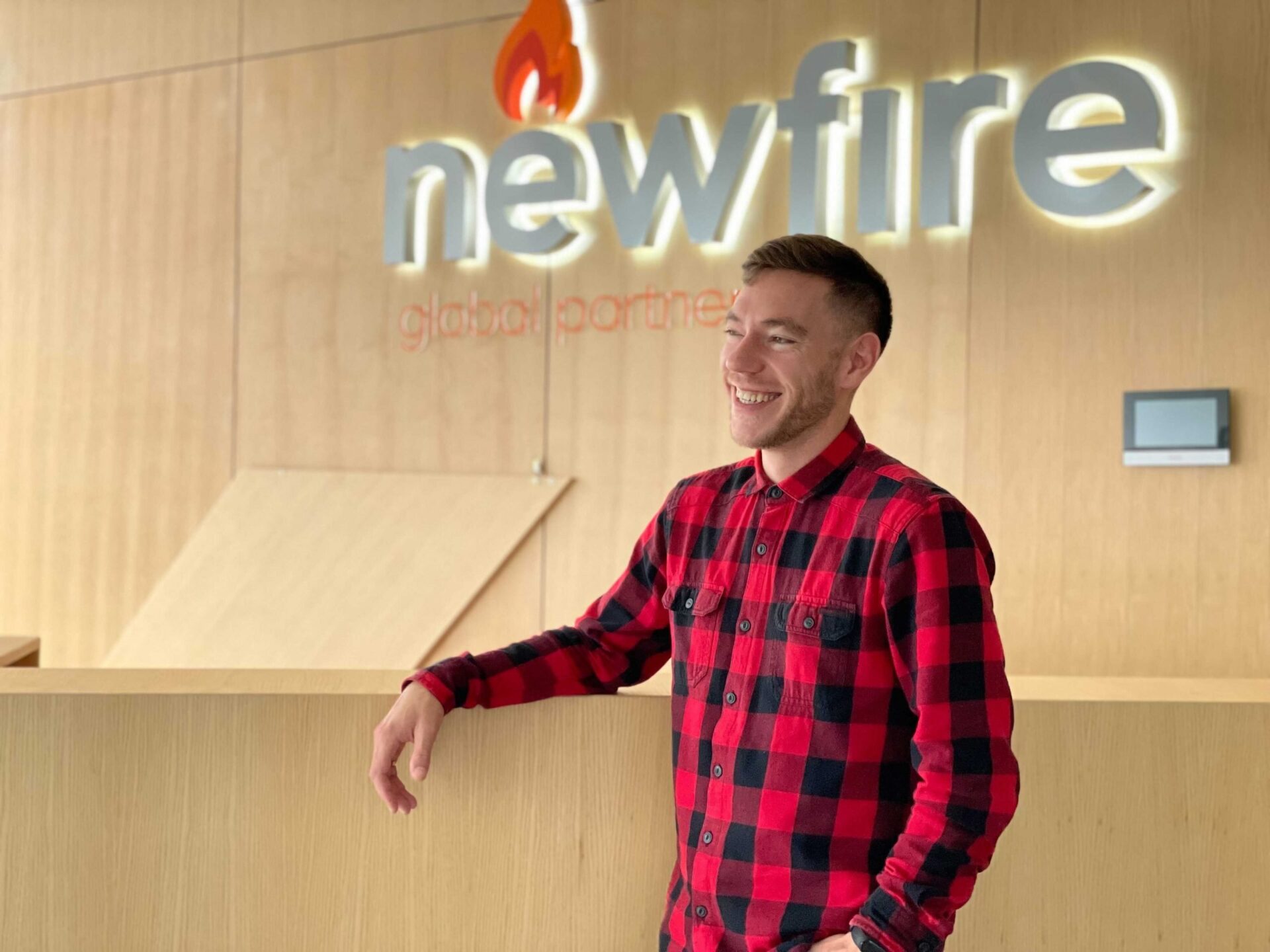Mentorship 101: How Newfire’s Culture of Support Leads to Career Growth & Success
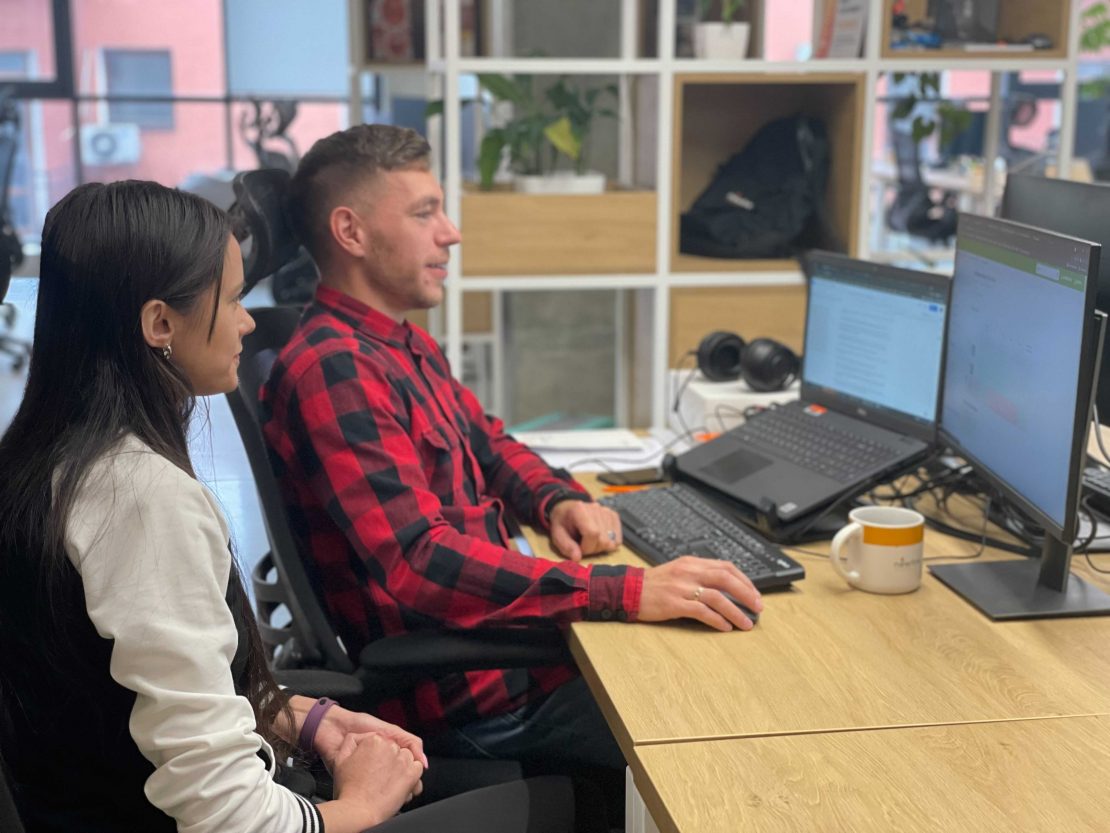
At Newfire, our goal is to support all team members, no matter where they are in their careers. Our mentorship program is an example of our dedication to thoughtful and effective leadership as well as lifelong learning. Our mentorship program serves as a growth experience for both mentors and mentees alike.
Enjoy this short interview with two recent participants of the program: Halia, a QA engineer, and mentor to Petro, who was pursuing a new role in the quality assurance domain.
Hi Halia, hi Petro, can you please introduce yourselves?
Halia, Mentor: My name is Halia. I have been working as a QA engineer for over 4 years on various projects in different domains, including ticketing, finance, online education, food ordering, and healthcare. I’m now part of an amazing team on one of Newfire’s biggest projects.
Petro, Mentee: At Ivano-Frankivsk University, I studied at the Faculty of Automation and Computer Science. I had been working for my previous company for almost ten years and I wanted to change something in my life. I completed a quality control course to gain theoretical and practical knowledge in software testing, and this course became the start of my new career.
How did both of you come to join the mentorship program – Halia as a mentor, and Petro as a mentee?
Halia: Our QA chapter lead was my mentor from my previous job. He recommended me as a mentor for the program as a way to stretch myself with a new experience and an opportunity to grow professionally.
Petro: After completing the quality control course, I knew that’s what I wanted to focus on but I struggled to find the right place for the next step in my career. I was excited to land the role at Newfire and become the first mentee in this program. It gave me the opportunity to develop and apply my knowledge while growing a new career path.
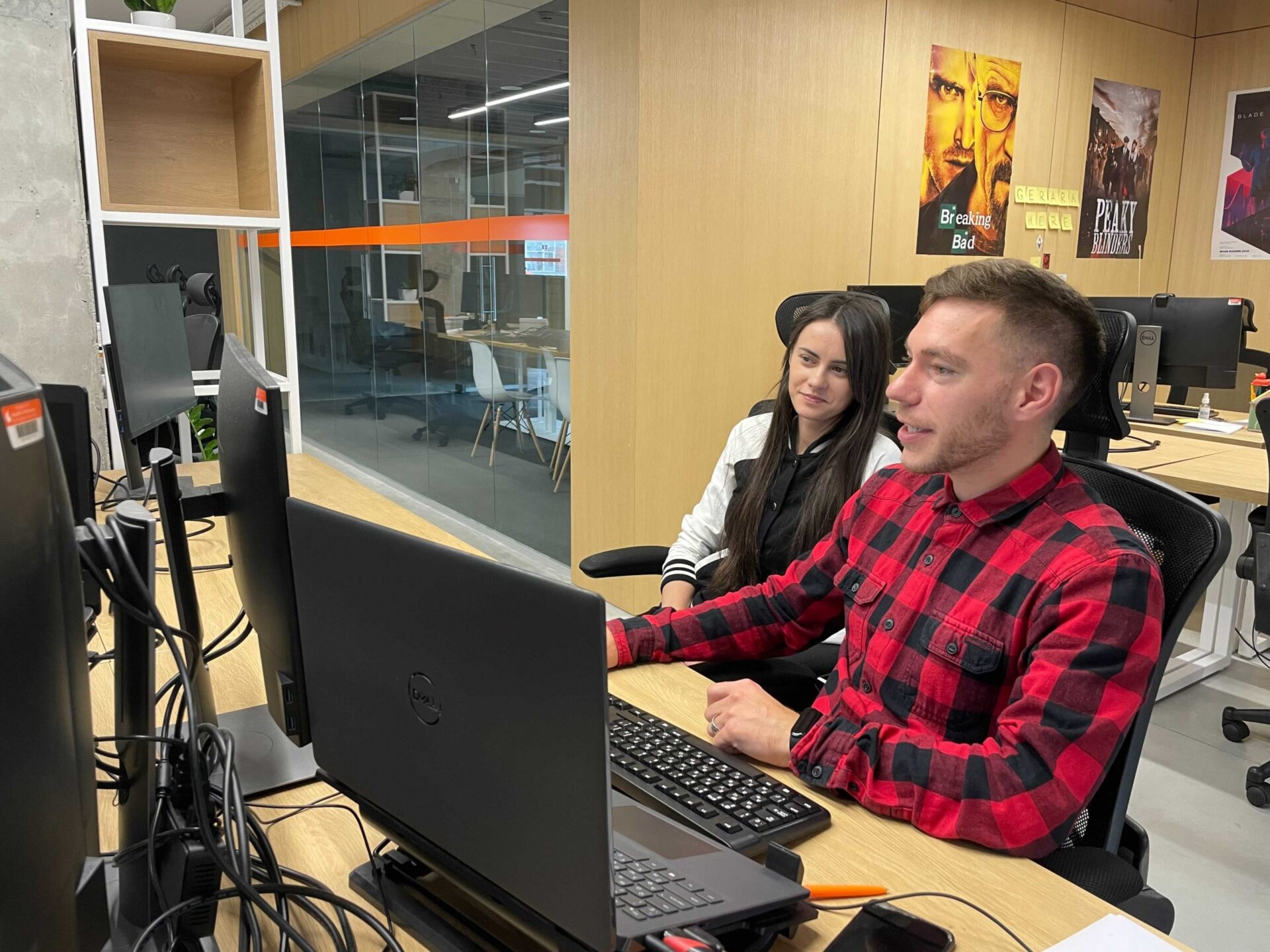
What were your personal expectations for the program?
Halia: I hoped it would help me to refresh my knowledge, reveal my own technical gaps, and help a fellow colleague to develop their career. I was able to accomplish all that.
I’d heard positive feedback about Petro from our interviewers and it turned out to be true. We cultivated a great working relationship. At times he’d ask questions I had no answers for, which forced me to grow and expand my own knowledge in order to help him find the answers and learn along with him.
Petro: The goal for me was to learn as much information as possible about testing and then be able to apply that knowledge in my day-to-day work. With Halia’s support, I have learned everything I needed to know to get started in my new role.
What are the learning goals for the program?
Halia: The program consists of 6 key aspects of technical knowledge needed for Junior QA engineers, including testing theory and test design techniques, test documentation, basics of DB testing, and API testing. We had 2 weeks to focus on each specific part and I would add resources or related tasks along the way.
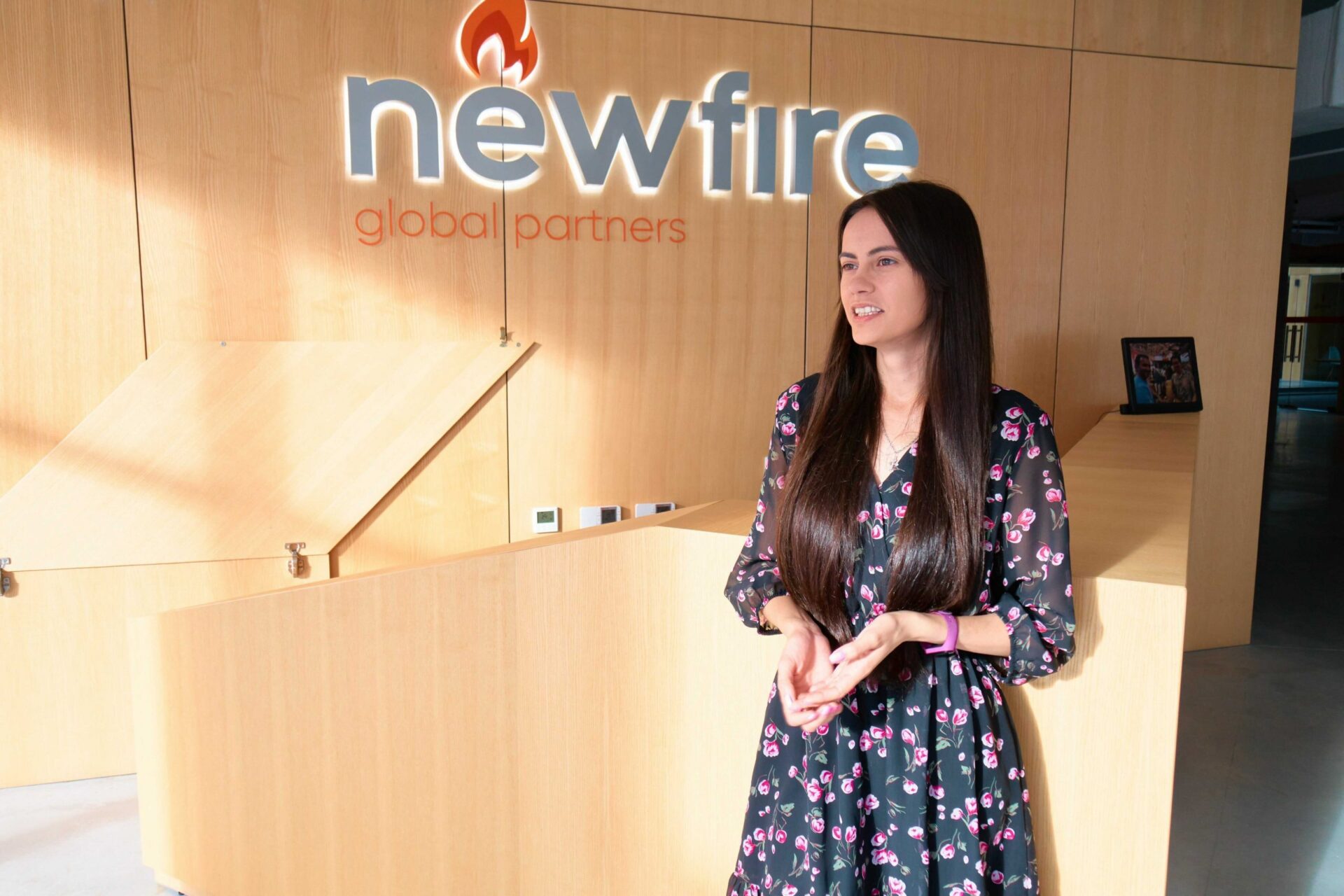
What did you enjoy most during the program?
Halia: While the process itself is important, my focus was on results. And seeing Petro’s outcomes was super exciting. He has successfully passed our MQA internship program and our technical evaluation interview. He is now a full-time member of our “family of professionals.”
Petro: Once I was able to apply my knowledge in practice, it became much easier to fully understand everything, and the work itself became so much more interesting. It’s nice to see my studies pay off, and the result is an even greater motivation for me to keep studying and working.
What are the key factors for a mentorship program to be successful?
Halia: Advanced preparation was key for me to be a successful mentor. I made sure to prep all materials and resources in advance in order to have enough time to focus on my current client projects.
Additionally, setting clear expectations around deadlines and sticking to them. It’s not easy to get back on track with the schedule once you’ve missed something along the way.
Finally, don’t be afraid to ask your experienced colleagues for ideas, additional resources, or task ideas for your mentee. It’s helpful to get additional input.
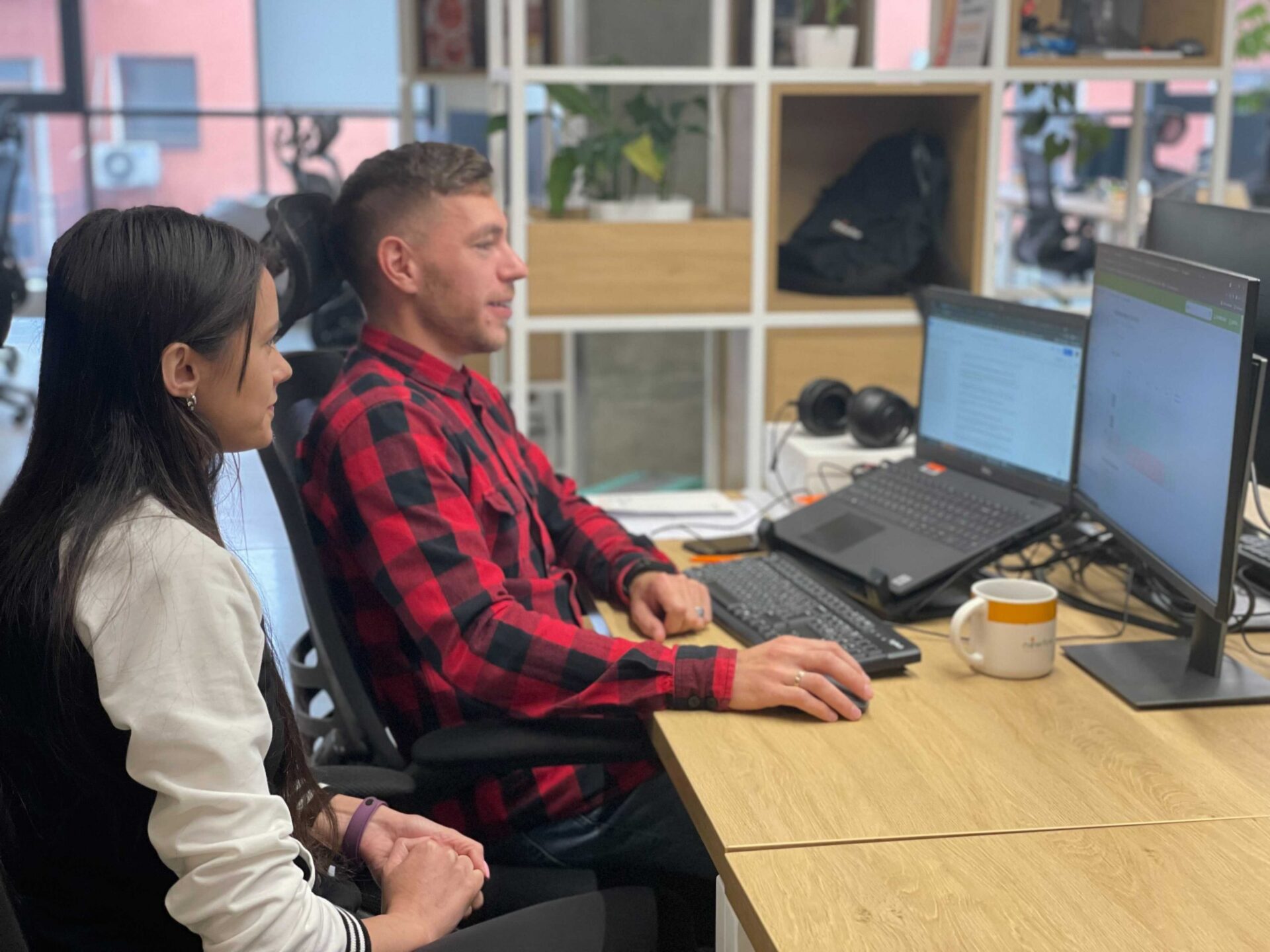
What are the must-have skills a successful mentee should posess or work towards?
Petro: A mentee must have the desire to learn and constantly improve, and also establish a clear goal for what they want to accomplish by being part of the mentorship program.
What about necessary skills for a mentor to be successful?
Halia: A lot of people know and understand technology or technique, but can’t explain it to others. In addition to having a strong technical background, the mentor needs to be able to teach effectively, have the ability to give honest and objective feedback, and be able to motivate their mentee.
Petro, how would you ultimately describe your experience with your mentor?
Petro: Halia is smart, knows her job well, and was able to clearly explain all the material. I am very grateful to her for her training and for her patience. It was a pleasure to work with her and I am very glad that she was my mentor.
I want to thank Halia for her ability and desire to serve as a mentor, and for sharing her knowledge and her time with me. She made my training a priority and I am very grateful.
Halia, is there anything perhaps that you’ve learned from Petro?
Petro taught me a few things from a technical skills perspective. Thanks, Petro, for asking the right questions.
Finally, would you recommend the mentorship program to others?
Halia: Yes, if you have the drive and desire to teach others and share your knowledge, it can really make a difference in someone’s career to serve as a mentor.
Petro, now that you’ve successfully finished the program and passed the evaluation, what’s next?
Petro: I will continue my studies, improve my knowledge, and continue learning new things. I will continue to improve myself and achieve new opportunities.
